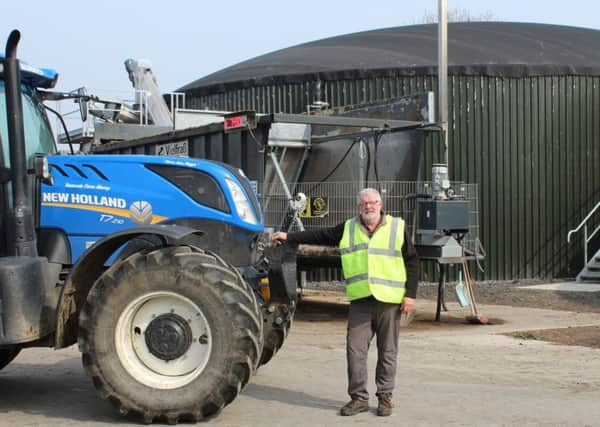AD – a story of real co-operation


He has been running his ‘Connex Renewables Ltd’ 500 kilowatt plant at Carn on the outskirts of Portadown for the past two years. This followed a four-year period during which the project was brought from the conception stage through to full reality.
Brian has a very strong dairy and pig farming background. After leaving Loughry College, where he studied food technology, Brian worked in the food processing sector for thirty years.
Advertisement
Advertisement
“I was aware of the potential that AD could deliver as a business for some time prior to me committing to the Connex project,” he said.
“My business model is different from that put in place for most of the other AD plants now operating in Northern Ireland, given that I don’t own or lease land.
“The only land owned by the business is the two-acre site on which the digestor and the other plant required for the operation are located.”
Brian continued: “The feedstock for the plant itself comprises potato waste, which is a liquid, grass silage and poultry litter.
Advertisement
Advertisement
“All of these are bought-in and delivered to the site on a daily basis. My digestate is then supplied to another AD plant, located on an arable farm, which has no direct access to cattle slurry.
“I regard this as a perfect example of co-operation in action.”
Brian is quick to point to the benefits which the AD sector is bringing to Northern Ireland’s rural economy.
“In my own case I have worked with local dealers to buy a slurry tanker, a loading shovel and all of the other equipment items I need to keep the plant running on a 24:7 basis.
Advertisement
Advertisement
“I also work with local farmers to procure the silage that I need. And, no doubt, the same principle holds with all the other AD plants now in operation.”
He continued: “I don’t buy-in to this idea that AD is pricing farmers who want to produce milk and beef out of the market when it comes to accessing the ground they need for their businesses.
“In the first instance, the number of AD plants in Northern Ireland is still less than 100. As a result, the actual amount the land they need, relative to that which is available to the farming industry as a whole, is very small.
“But it’s often overlooked that we have a tradition of growing non-food crops in this part of the world.
Advertisement
Advertisement
“Flax was a crop grown in many areas of the country for generations. Back in the day, local farmers also grew large acreages of oats for horses, which were the real power house of the entire economy at that time.”
When it comes to operating his AD plant, Brian immediately points to the absolute necessity of achieving optimal performance from the system at all times.
“Last year, we achieved an overall efficiency rating of 97%,” he confirmed.
“All of the electricity generated goes to the grid. Running an AD plant entails a full-time commitment on the part of the operator. It is a business, which requires financing, proper planning plus full adherence to all the required environmental and health and safety standards.”
Advertisement
Advertisement
“My background in the food industry provided me with the skills required to make this happen.”
Looking ahead, Brian wants to add further value to his AD business.
“The big opportunity for the future is that of making best use of the waste heat produced by the plant,” he concluded.
“At present, this is simply being vented-off to the atmosphere. However, I am currently looking at a number of options, which will allow me add significant value to the heat produced by the plant.
“It’s a case of making best use of all the resources available to the business.”